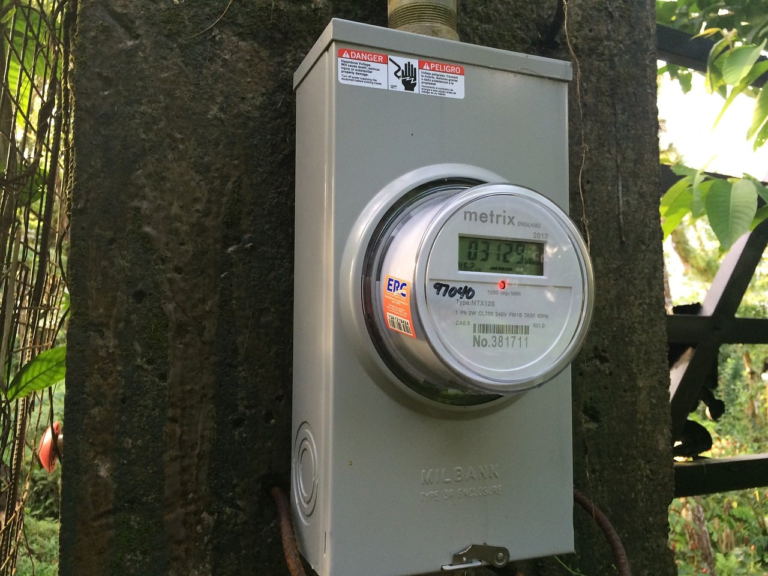Net metering laws and incentives are essential in today’s dynamic energy scene because they enable households to adopt renewable energy sources like solar power while negotiating the intricacies of utility practices and energy regulations. Your understanding of net metering and the incentives that are available might greatly influence whether or not you invest in solar energy systems for your house.
1. Introduction to Net Metering: Empowering Homeowners with Energy Independence
Solar-powered houses can use their surplus energy by sending it back to the grid via net metering. This allows them to reduce their overall electricity costs and even earn Solar Renewable Energy Certificates (SRECs). This process uses a meter that can measure in both directions to monitor both the excess power that is exported back to the grid and the energy that is imported from it.
In the event that your solar panels produce more energy than your home consumes, you may be eligible to get credits that will reduce your future power expenses. Look up online for ‘SREC Illinois’ to get better guidance. As a result, net metering enables you to achieve greater energy independence by reducing your reliance on traditional electricity produced by utilities.

2. State-Specific Net Metering Policies: Navigating Regulatory Frameworks
State and utility-specific net metering regulations affect how much solar energy systems cost and how they must be operated. Several jurisdictions provide one-to-one retail credit for excess power sent to the grid, which credits each kWh exported at the same rate as each kWh used from the grid. Time-of-use (TOU) tariffs or other alternative compensation schemes may be implemented by other states, which might impact the profitability of solar projects.
Comprehending the net metering regulations in your state is essential to maximizing the financial benefit of your solar energy setup. It entails being acquainted with the prerequisites for eligibility, the application process, and any capacity restrictions or constraints that can affect your ability to participate in net metering schemes.
3. Economic Benefits and Financial Incentives: Maximizing Solar Investment Returns
Purchasing a solar energy system has other financial advantages besides lower power costs. Financial incentives offered by the federal government and state governments are available to homeowners. One such incentive is the federal Investment Tax Credit (ITC), which offers a sizable tax credit based on a portion of the total cost of installing a solar energy system. Additionally, to help offset initial expenses and shorten the payback time for solar investments, several states provide grants, rebates, or low-interest financing alternatives.
Moreover, by locking in consistent energy prices for the solar panels’ 25-year lifetime or beyond, net metering enables homeowners to protect themselves against any rises in power rates. This financial stability provides long-term financial security and peace of mind, which improves family budgeting and lowers vulnerability to erratic energy markets.
4. Utility Interconnection and Metering Requirements: Ensuring System Compatibility
It is necessary to adhere to the technical specifications and metering criteria set out by your local utility and regulatory bodies to connect your solar energy system to the utility grid. Certain kinds of meters that can precisely measure the flow of power in both directions may be needed by utilities in order to perform net metering computations. In addition, agreements for grid connectivity of solar projects include roles, safety measures, and methods of operation.
Optimizing the efficiency and dependability of your solar energy system requires ensuring it is compatible with other systems and following utility interconnection regulations. Professional installation by licensed solar contractors guarantees compliance with legal and industry standards, reducing the possibility of problems and guaranteeing a smooth connection with the grid.

5. Monitoring and Maintenance Considerations: Optimizing System Performance
Maintenance and monitoring are essential to maximize energy output and extend the life of your solar energy system. Real-time tracking of power production is a common feature of solar systems, giving homeowners the ability to monitor system performance and quickly detect any possible problems. Regularly maintaining solar panels and electrical components maintains maximum efficiency and prevents performance from deteriorating over time.
In addition, it’s critical to comprehend the service agreements and warranty coverage offered by solar equipment manufacturers and installers so that you can handle any equipment problems or warranty claims immediately. By proactively managing system maintenance and monitoring, homeowners may optimize energy output, maximize financial returns, and extend the operational lifetime of their solar energy systems.
Conclusion
Understanding net metering regulations and incentives enables households to accept solar energy as an economical and environmentally friendly way to satisfy their electricity demands. By using net metering, you can lower energy expenses, improve energy independence, and contribute to a more resilient and sustainable energy future.

